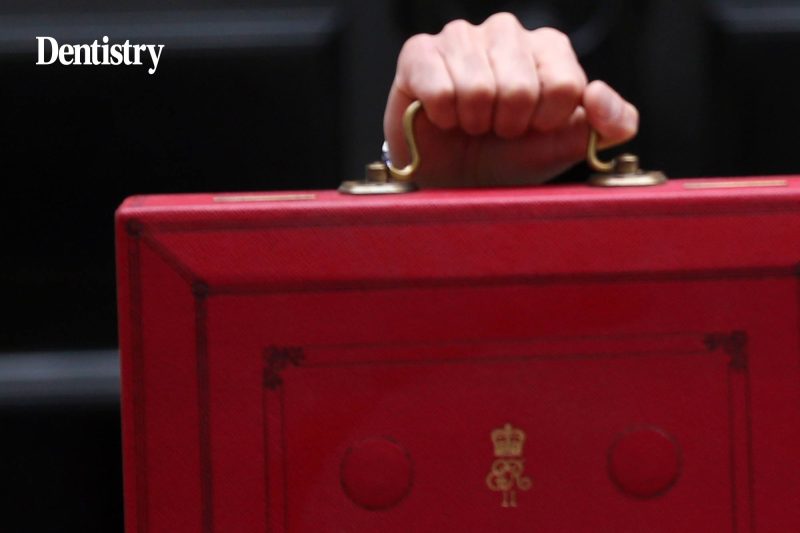Autumn Budget 2024: live updates

Chancellor Rachel Reeves has delivered Labour’s first budget for 14 years – here’s what we know so far.
Over the last few weeks, Reeves has warned that ‘difficult decisions’ have had to be made, with many predicting tax rises and spending cuts.
A number of measures were confirmed ahead of the budget, including:
- Minimum wage to rise in April, with hourly rates for over-21s set to increase to £12.21 an hour
- £2 bus fare cap in England to rise to £3
- Around £1.4 billion will be invested in schooling
- A commitment of £500m boost to the Affordable Homes Programme.
The autumn budget – what was announced?
Here is what was announced by Reeves:
- No increase to national insurance, income tax or VAT
- Reeves tells the Commons that the budget will raise taxes by £40 billion and will maintain the Bank of England’s inflation target of 2%
- Freeze on fuel duty continued in 2025
- Spending on the state pension is projected to rise 4.1% in 2025-26 – Reeves said that this is a £470 increase for over 12 million pensioners in the UK
- Capital gains tax to increase, with the lower rate will rising from 10% to 18%, and the higher rate increasing from 20% to 24%. It will remain at 18% and 24% for residential property
- National Insurance contributions by employers will rise from 13.8% to 15%
- Employment allowance will increase from £5,000 to £10,500
- Inheritance tax threshold to be extended by two years to 2030. From April 2026, the first £1 milliob of combined business and agricultural assets will continue to attract no inheritance tax at all. But for assets over £1m, inheritance tax will apply with 50% relief at an effective rate of 20%
- Soft drinks industry levy to increase
- Duty on draft alcohol
- From 1 Oct 2026, a vaping duty will be introduced at £2.20 per 10ml of liquid
- 50% increase in air passenger duty for private jets
- Non-dom tax status to be abolished
- Increase in stamp duty for second homes, rising from 3% to 5%, coming into force from tomorrow (31 October)
- VAT to be introduced on private schools from January 2025.
We spoke to Gordon McMillan and Aaron Prested from Wesleyan Financial Services about how the newly-announced measures will impact dentists. You can watch below.
What does the budget mean for dentists?
Iain Stevenson, head of dental at Wesleyan Financial Services said: ‘It was good to see the tax-free lump sum left untouched today. In our view, reducing or removing it would have had serious knock-on effects for dentists’ financial plans, causing some to re-think their retirement strategies and undermining confidence in pension saving overall.
‘We hope that this isn’t brought up again as a potential source of tax-revenue and would welcome any commitment from the government around its future. After all, good planning is underpinned by certainty.’
He described the rise in employer national insurance contributions as ‘unwelcome news’ for dentists, adding: ‘As well as hitting their take-home pay, it will cut into practice profits – making it even harder for dentists to invest in their facilities and teams.’
Pensions ‘still tax efficient’
On pensions being brought into inheritance tax, he said: ‘The government wants a fairer tax system and for inheritance to be applied consistently across similar products such as pensions and savings.
‘They also want to encourage people to use their pension tax relief for retirement as it was initially intended for and not as capital to be passed on. The NHS is currently included in the estate in the event of death, and the TPS and personal pensions will be treated in the same way from April 2027.
‘This doesn’t mean pensions are no longer tax efficient investments, but clients may look differently at how they take them at retirement. Rather than moving funds into income drawdown so they can be inherited by their dependants for example, they now may choose to take them and reinvest the money in a more IHT friendly investment such as an investment held in trust.
‘It has made IHT and retirement planning slightly more complicated as there will need to be a comparison between the IHT liability of leaving the funds in a pension compared to the tax incurred for withdrawing the funds.
‘This will have upended some dentists’ plans. If you have been affected, it is highly recommended to seek professional financial advice – IHT rules can be incredibly complex, and an adviser can help you consider any necessary changes to make sure your money is passed on to your loved ones in the most tax-efficient way and in line with your plans.’
Increasing pressure
He added: ‘The Chancellor also announced that Capital Gains Tax, paid on profits on the sale of business assets, would increase from 10% to 18% for basic rate taxpayers and from 20% to 24% for higher rate taxpayers.”
‘At the same time, Business Asset Disposal Relief, which allows gains of up to £1 million to be taxed at a reduced rate of 10%, will rise to 14% in April 2025 and 18% from 2026-27.’
That could be a serious blow to any practice owner who had planned to sell up to fund their retirement and who will now have to revisit their plans and recalculate whether a sale will now achieve the outcome they had anticipated.
Nigel Jones, sales director of Practice Plan, expressed concern over today’s budget. He said: ‘The business asset disposal relief (BADR) provided an incentive for dentists to take the risk of starting and growing their own business. Today’s news weakens the incentive for them to do so, which will likely result in fewer dental options available for patients, and put more pressure on existing services.
‘It will also impact those who were planning a sale soon, or those in the middle of a process. They may need to go back to the drawing board.’
NI increase a ‘big hit’ on businesses
Vinay Rathod, founder of VR Financial Solutions, said: ‘I think, overall, most would agree that this doesn’t appear to be a positive announcement. It has revealed a lot of impact that will hit the middle class earners, but we hope that in the medium- to long-term, that will seed growth and improvement in the country and economy.
‘That should mean that we will all see a benefit in in the future, but dentists are likely to feel the pinch. Employers will also pay more in national insurance and minimum wages to PAYE (pass as you earn) staff, and they be taxed more in the future.
‘The general gist of this budget is that the people with the money will be taxed more, and the many people without enough will be more comfortable.’
Impact of budget
For practice owners, Vinay said that the increased national living wage and minimum wage will have a big impact. ‘This means that a large number of practices will see an increase in their wage bill. The national insurance by employers is also going up – another increase there for practice owners.
‘If practice owners make less profit, it makes it more difficult for them to be generous with associate splits. So, it does have a knock on effect down the line to associates too. If the owners of businesses are making less profit, they can pay the associates less generously, or they have to slow down any potential growth.
‘So for business people in dentistry, this is probably going to be seen as a big hit.’
He also said: ‘Pensions being subject to inheritance tax is going to have a huge, huge impact to a profession who are fortunate enough to heavily contribute to pensions.
‘In addition, income tax thresholds will be unfrozen from 2028 onwards and will rise with inflation. This will actually give dentists something back in the future, because income tax thresholds have been frozen for years. In another few years, they’ll start to go up in line with inflation.’
‘Stability, investment, reform’
Setting out the purpose of the government’s pledge to protect working people this week, Prime Minister Keir Starmer said: ‘It is working people who pay the price when their government fails to deliver economic stability.
‘They’ve had enough of slow growth, stagnant living standards and crumbling public services. They know that austerity is no solution. And they’ve seen the chaos when politicians let borrowing get out of control.
‘We choose a different path: honest, responsible, long-term decisions in the interests of working people. It’s stability that means we can invest, and reform that will maximise that investment.
‘Stability, investment, reform. That’s how we fix the NHS, rebuild Britain and protect working people’s payslips. Delivering on the mandate of change.’
Follow Dentistry.co.uk on Instagram to keep up with all the latest dental news and trends.







